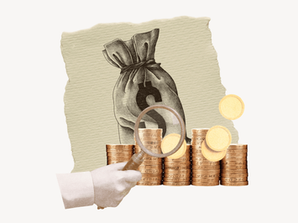Islamic Finances and Investing
- Mohammad Rahman
- Nov 25, 2024
- 3 min read
Updated: Feb 3, 2025
The global financial market has long been dominated by conventional banking systems. However, the rapid growth of Islamic banking in the past decade, at an impressive rate of 15%, has showcased its increasing significance. This expansion is driven by the numerous benefits offered by Shariah-compliant financial practices. In response, many local and international banks have integrated Islamic banking units and services into their existing operations.
Modern Islamic banking began in 1963 in Egypt, and since then, it has grown into a robust financial model that is now practiced globally, including in non-Muslim countries. Today, the Islamic banking and finance industry has surpassed $4.8 trillion globally. Rooted in Shariah principles, it prohibits the payment or receipt of interest (Riba), investments in unethical industries, and speculative transactions. This ethical framework has made Islamic finance an attractive and sustainable alternative to conventional systems.

7 Benefits of True Halal Finances and Investing
1. Ethical Investment Practices
Halal finance operates under strict ethical guidelines derived from Islamic principles. Investments are carefully screened to avoid sectors deemed harmful or unethical, such as alcohol production, gambling, pornography, and weapons manufacturing. This ensures that funds are directed towards industries that contribute positively to society, such as healthcare, education, and sustainable energy.
The focus on moral values ensures wealth is earned and utilized responsibly, fostering trust among stakeholders and encouraging long-term societal benefits.
2. Elimination of Riba (Interest)
A defining feature of Halal finance is the prohibition of Riba, or interest. This prohibition stems from the belief that earning money from money, without contributing value, is exploitative and unjust. Instead, Halal finance employs profit-and-loss-sharing models such as Mudarabah (investment partnership) and Musharakah (joint venture), where profits and losses are shared based on pre-agreed ratios.
This approach encourages mutual accountability and reduces the concentration of wealth, promoting a more equitable financial system.
3. Encourages Risk Sharing
Halal financial contracts, such as Mudarabah and Musharakah, are based on partnership principles. These contracts promote risk sharing rather than risk transfer, fostering trust and collaboration between financial institutions and their clients.
4. Promotes Social Justice, Transparency and Fairness
Halal finance is designed to uphold fairness and accountability. It avoids exploitative practices like excessive risk, ambiguous terms (gharar), or predatory lending. Contracts are transparent, ensuring all parties understand their rights and obligations.
This approach addresses wealth inequality by encouraging the fair distribution of resources and empowering marginalized communities through microfinance and inclusive financial models.
5. Supports Asset-Backed Financing
Unlike conventional finance, which often deals in speculative transactions, true Halal finance mandates that all transactions be backed by tangible assets or services. This reduces risks associated with economic bubbles and promotes stability in financial markets.
6. Strengthens Financial Stability
In Islamic finance, investments are approached cautiously and the decision-making process is carried out thoroughly unlike the conventional banking system. The companies that appear risky are usually kept away from financial institutes.
This is why during the global 2008 financial crisis and during the Covid-19 pandemic; the Islamic financial institutes remained untouched. With careful audits and analysis, the Islamic Finance Institute lessens the occurrence of risk and enhances financial stability.
7. Encourages Sustainable Development
Halal investing prioritizes projects that benefit society and the environment, such as renewable energy, healthcare, and education. It avoids industries that harm communities or degrade the planet, ensuring investments align with long-term sustainability goals.
By focusing on ethical growth, Halal finance promotes societal welfare, environmental protection, and a more equitable future while supporting global sustainability initiatives.
.png)









Comments